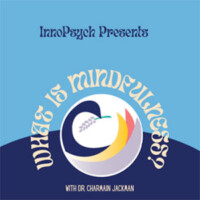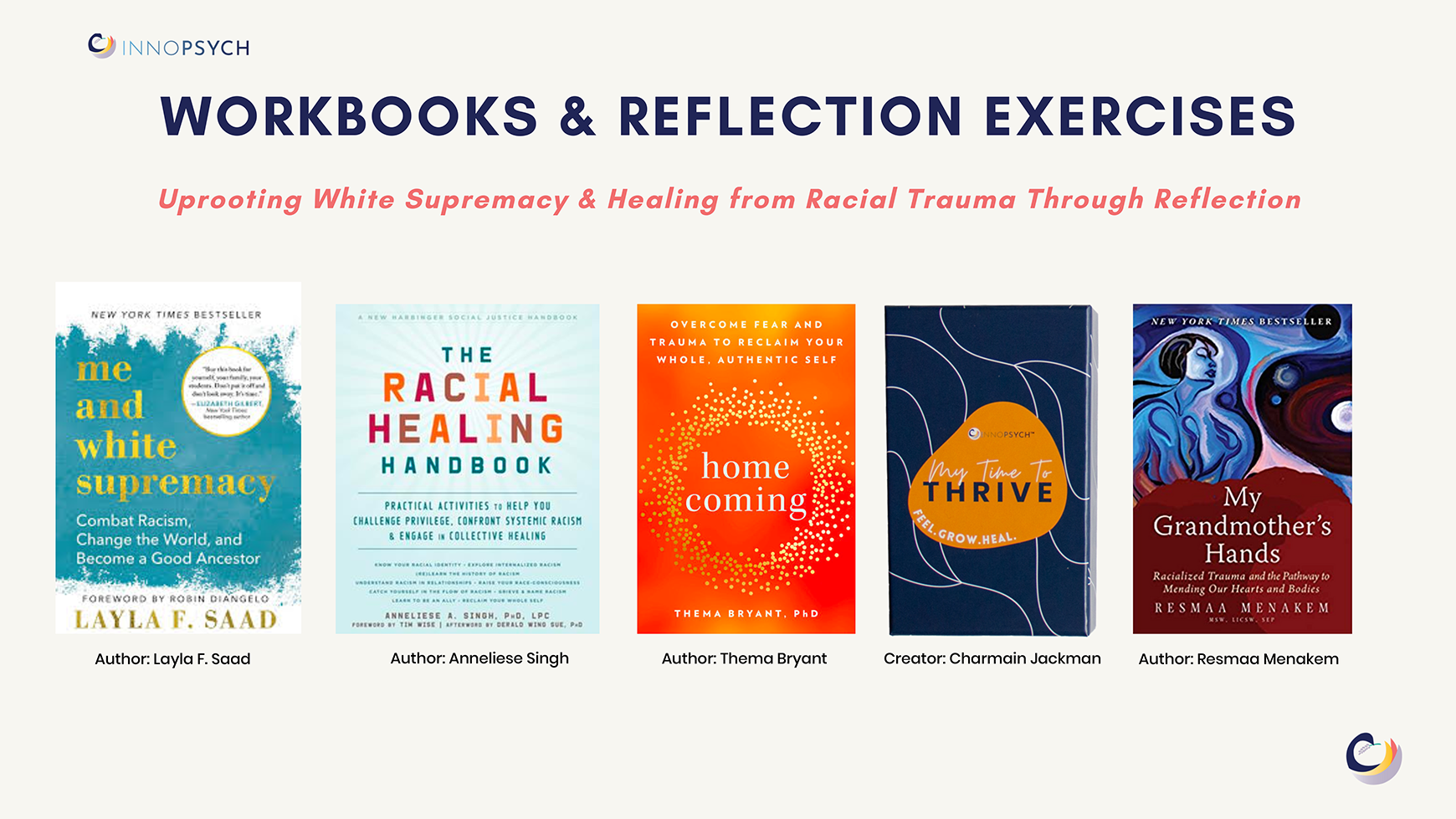The following audience support resources were curated by Dr. Charmain Jackman, founder + CEO of InnoPsych, an award-winning mental health tech company that is on a mission to disrupt racial inequities in mental health. InnoPsych is an industry leader providing culturally relevant emotional wellbeing resources that aim to break down barriers to access and improve mental health outcomes for communities of color.
The audience support resources were curated to increase our awareness and understanding of the impact of enslavement and White Supremacy on the psyche of the descendants of the enslaved and the enslavers. However, regardless of your racial background, you have been impacted by colonization and enslavement in some way. To that point, the resources can be used by everyone.
Be well on your healing journey.
Dr. Charmain
WHAT IS RACIAL TRAUMA?
Racial trauma or Race-Based Traumatic Stress
The threat to emotional, physical, and psychological safety due to racial discrimination (overt), racial microaggressions (covert), and racially motivated incidents such as workplace bullying, police profiling, and racial violence. These reactions can manifest as flashbacks; avoidance of triggering people, content, or spaces; shutting down; withdrawing; emotional triggers when confronted with reminders of the events; distressing thoughts; hyper-vigilance or always on guard; mood changes and irritability.
Other forms of racial include historical trauma and collective trauma. These are traumas that groups of people with similar social identities (e.g., race, ethnicity, religion, immigration status, etc) have experienced in the past or that they have experienced or witnessed at the same time. While these traumatic experiences may have happened in the distant past, they often have very present-day impacts. For example, the enslavement of Africans, the Holocaust, and the public murder of George Floyd.
Additionally, generational trauma refers to responses to traumatic events that are passed through different generations. Epigenetic research has shown that trauma can be passed through 14 generations.

WHAT HAPPENS WHEN WE EXPERIENCE A TRAUMA?
When we are triggered, feel threatened, or fear for our lives, our bodies engage in an automatic response that directs the person’s response to the perceived threat or danger. We exhibit these responses in many situations such as environmental events, accidents, life-threatening situations, and even discussions of race.
Trauma lives in our memories and in our bodies.

WHAT CAN I DO WHEN I FEEL TRIGGERED?
 Mindfulness is a stress reduction practice that helps you to slow down by using your breath, focusing on the present, and engaging in curiosity and kindness. Engaging in a daily mindfulness practice can help you to deal more effectively with triggers and traumatic events. Learn more about mindfulness in this brief video created by Dr. Jackman.
Mindfulness is a stress reduction practice that helps you to slow down by using your breath, focusing on the present, and engaging in curiosity and kindness. Engaging in a daily mindfulness practice can help you to deal more effectively with triggers and traumatic events. Learn more about mindfulness in this brief video created by Dr. Jackman.
Grounding Techniques
Grounding is a mindfulness technique that helps us reconnect to our surroundings when we are feeling triggered and flooded with emotion, overwhelmed with negative thoughts, or experiencing a panic attack.
Tuning In is a grounding technique that engages our 5 senses to help us connect back to the environment.
Simply connect back to your environment by identifying:
- 5 objects you can see
- 4 things you can touch/feel
- 3 things you can hear
- 2 things can smell
- 1 thing you can taste
What do you notice after completing this exercise?

Breathing Techniques
Choose one of these exercises to practice daily

Additional Resources
Additional resources to help with addressing internalized racism and white supremacy and to process racial trauma:

- My Grandmother’s Hands: Racialized Trauma and the Pathway to Mending Our Hearts and Bodies by Resmaa Menakem
- The Racial Healing Handbook: Practical Activities to Help You Challenge Privilege, Confront Systemic Racism, and Engage in Collective Healing by Annelise Singh
- Homecoming: Overcome Fear And Trauma To Reclaim Your Whole, Authentic Self by Dr. Thema Bryant-Davis
- Me and White Supremacy: Combat Racism, Change the World, and Become a Good Ancestor by Layla F. Saad and Robin DiAngelo
- My Time To Thrive: Feel. Grow. HealTM card deck is stacked with powerful tools, activities and quotes created to kickstart your personal journey to healing from challenging and traumatic life events.
Mental Wellness/Mindfulness/Meditation Apps
- Shine mental wellness for all
- Liberate for people of color
- Exhale for women of color
- The Safe Place for people of color

Community Healing Circles for the African Diaspora
- Community Healing Network offer Emotional Emancipation Circles for the African Diaspora
- Association of Black Psychologists: Sawubona Circles


